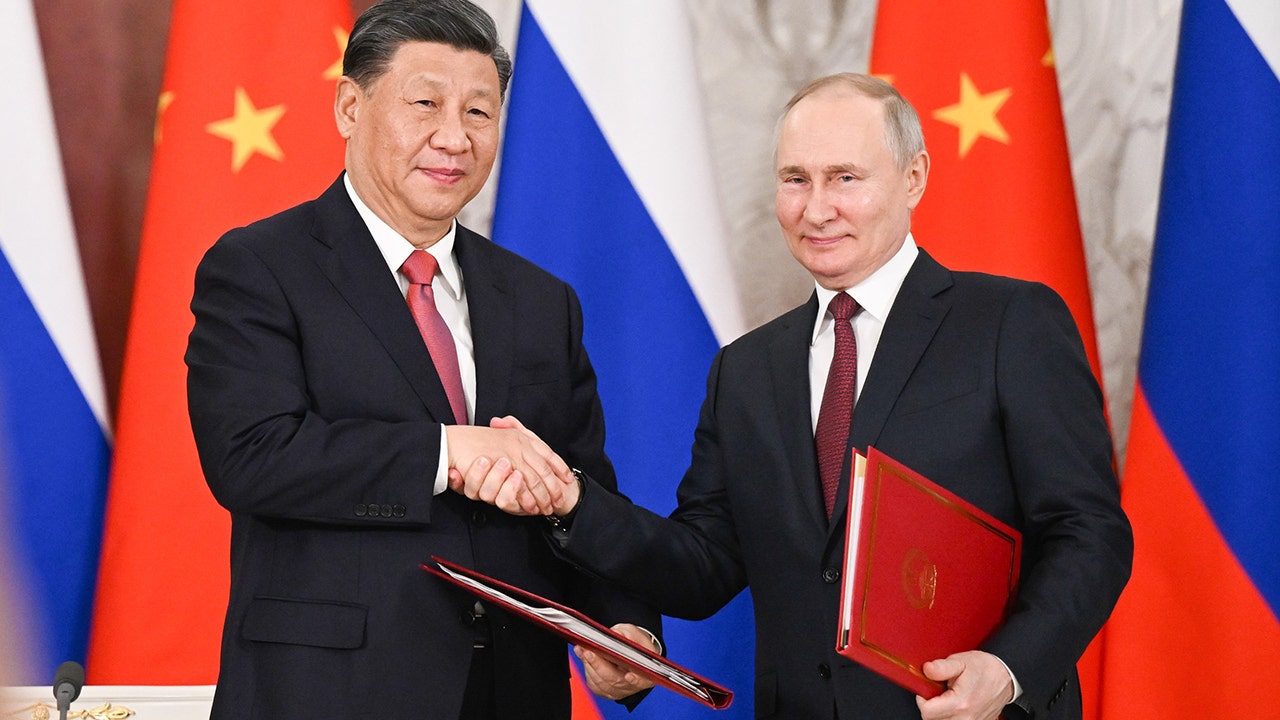Hong Kong passed new security laws, bowing to Beijing
Hong Kong passed national security laws at the behest of Beijing, thwarting decades of public resistance and establishing steep penalties for vaguely defined political crimes. Critics said the move would strike a lasting blow to the partial autonomy that the Chinese government had promised the city.
The first attempt to pass such legislation, in 2003, set off mass protests. But since 2020, when China imposed its own security law on Hong Kong, opposition figures have been jailed and public protests quelled. This time, the streets of Hong Kong were quiet.
Amelia spoke with Tiffany May, who covers Hong Kong for The Times.
How will these laws affect Hong Kong?
Tiffany: Whether it makes things better or worse depends on whom you ask.
Hong Kong has been an Asian financial center for decades because it was seen as a gateway to business opportunities in the mainland with an independent judiciary as its backbone. It also enjoyed freedoms unimaginable in the rest of the country.
But in recent years, the city has more closely followed China’s hard-line approach. The new national security bill, known as Article 23 legislation, targets ambiguous offenses such as “external interference” and “theft of state secrets.”
Critics say that this could chill all criticism of China and pose new risks for international business operations, eroding the very freedoms that had made the city an international business hub.
How is this law different from the national security law that was passed in 2020?
The new security laws widen the scope of offenses said to endanger national security. They also introduce important changes to due process. In some instances, the police may now seek permission from magistrates to prevent suspects from consulting with the lawyers of their choice, if that is deemed a threat to national security.
Analysts said that this could have a chilling effect on entrepreneurs, civil servants, lawyers, diplomats, journalists and academics. The punishments for political crimes such as treason and insurrection include life imprisonment.
Why was it hustled through the legislature?
China is at a place where it feels constantly attacked by the West.
The country’s top leader, Xi Jinping, sees national security legislation as necessary to protect China against what he considers unfair trade practices, the infiltration of spies and other types of security threats. This year, Beijing emphasized that it would prioritize both economic growth and security, and in February updated a state secrets law.
Analysts say that Xi is taking a similar approach with Hong Kong. Chinese officials have urged Hong Kong’s leaders to pass the city’s own security laws as quickly as possible. Hong Kong’s top leader, John Lee, said that passing the laws quickly would allow the government to focus on reviving the economy.
What is the mood in Hong Kong? And among foreign investors?
Representatives of foreign business chambers said that the advantage of doing business in Hong Kong rather than directly in mainland China is becoming less clear.
In general, it has become harder to gauge public opinion within Hong Kong. The city’s leading independent pollster, which has faced police raids, said it would stop publishing results on a number of politically sensitive topics.
Japan raised interest rates for the first time in 17 years
Japan’s central bank raised interest rates for the first time since 2007, pushing them above zero amid an inflation bump and rising wages that suggested that the country’s economy no longer needed such aggressive measures.
The increase is slight, with the bank’s target policy rate growing to a range of zero to 0.1 percent from minus 0.1 percent. The new rate is still much lower than those in many Western nations. But the hike has a dramatic symbolic effect, said my colleague Joe Rennison, who covers financial markets for The Times.
“I think this is sending a signal that prices aren’t coming back down any time soon,” he said.
Background: In 2016, Japan instituted a negative interest rate, an unorthodox step that means depositors pay to save money in a bank and loans are very cheap, which incentivizes spending and spurs growth. Japan was the last central bank to stop using a negative rate.
Related: Female employment in Japan has been steadily rising, part of an effort to bolster an aging and shrinking labor market.
The remarkably well-preserved site of a Bronze Age settlement in the freshwater marshes of eastern England provides an intimate look into the ancient past.
It appears that a sudden fire destroyed the settlement and the villagers fled, leaving their belongings to become entombed in peat and silt. The site is now the subject of two studies, as detailed as crime scene reports, that reveal a level of sophistication and material comfort rarely associated with England in that period.
Conversation Starters
SPORTS NEWS
A “significant” breach of P.S.R.: Nottingham Forest’s points deduction explained.
Sebastien Haller interview: From a hospital bed to lifting the Africa Cup of Nations trophy.
The mad perfumer of Parma
Hilde Soliani describes herself on her website as an artista dell’olfatto e del gusto, or “artist lady of smell and taste.”
She has created fantastical perfumes like Lacrima (the smell of snow) and Vecchi Rossetti (the smell of a theater dressing room), but her most beloved offerings are “gourmands,” or perfumes that smell like food, such as Buonissimo (brioche and cappuccino) and Orgasmo (amaretto).
Perfume’s popularity exploded during Covid, and Soliani’s work has found an eager following.
That’s it for today’s briefing. Thank you for spending part of your morning with us, and see you tomorrow. — Dan
P.S. The Times announced its 2024-25 fellowship class, a group of early-career journalists who will start in June.
You can reach Dan and the team at briefing@nytimes.com.






